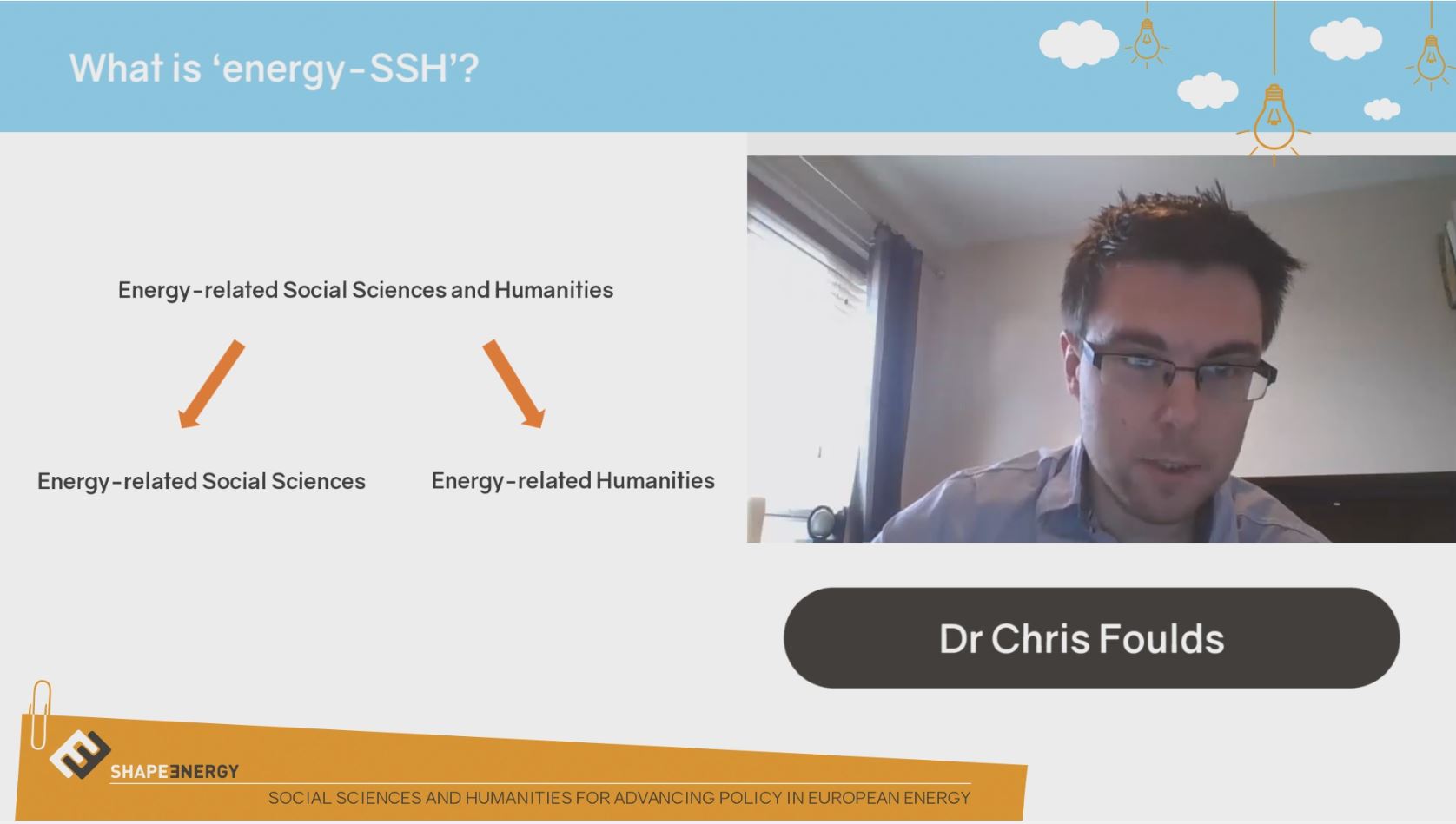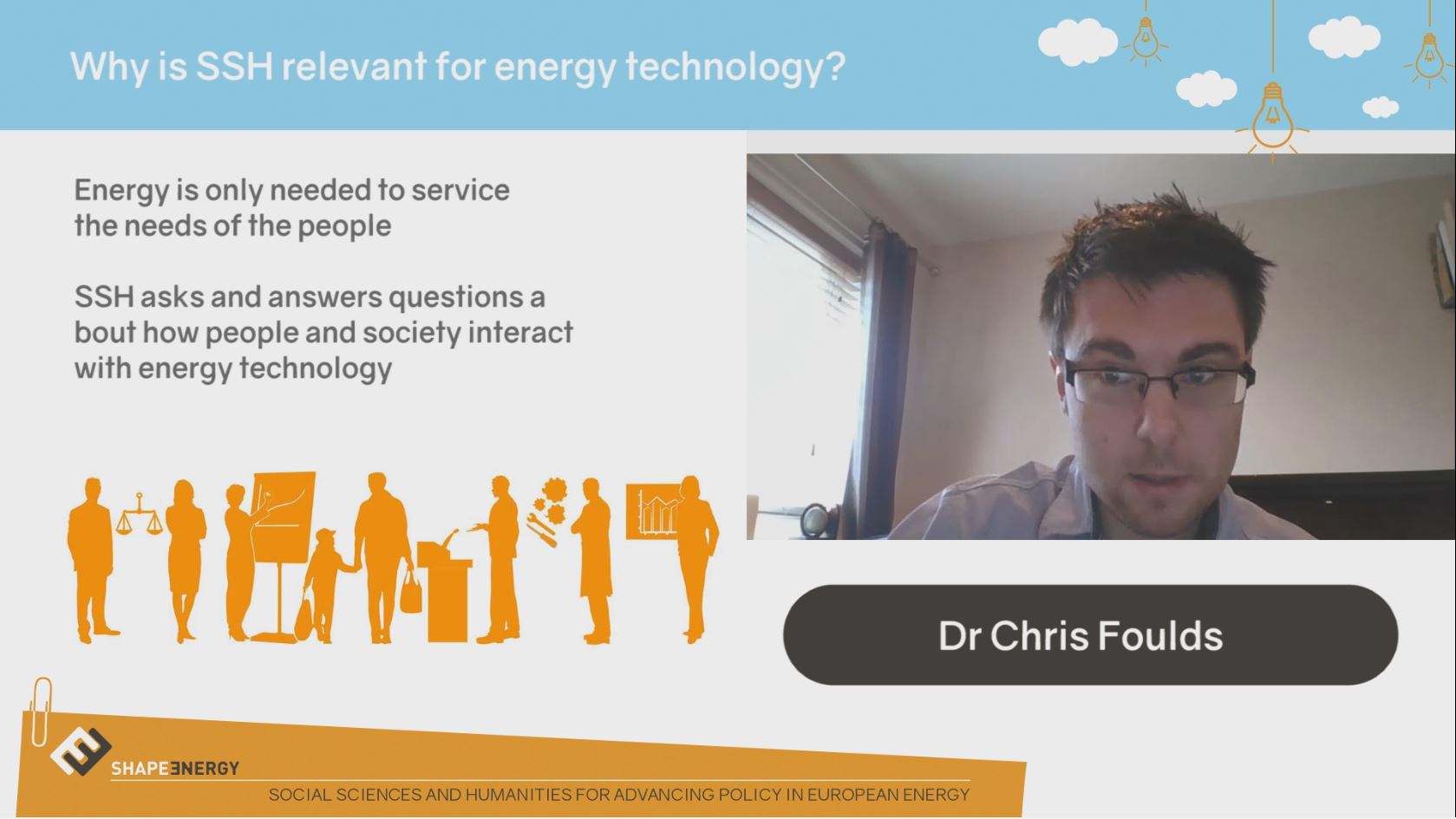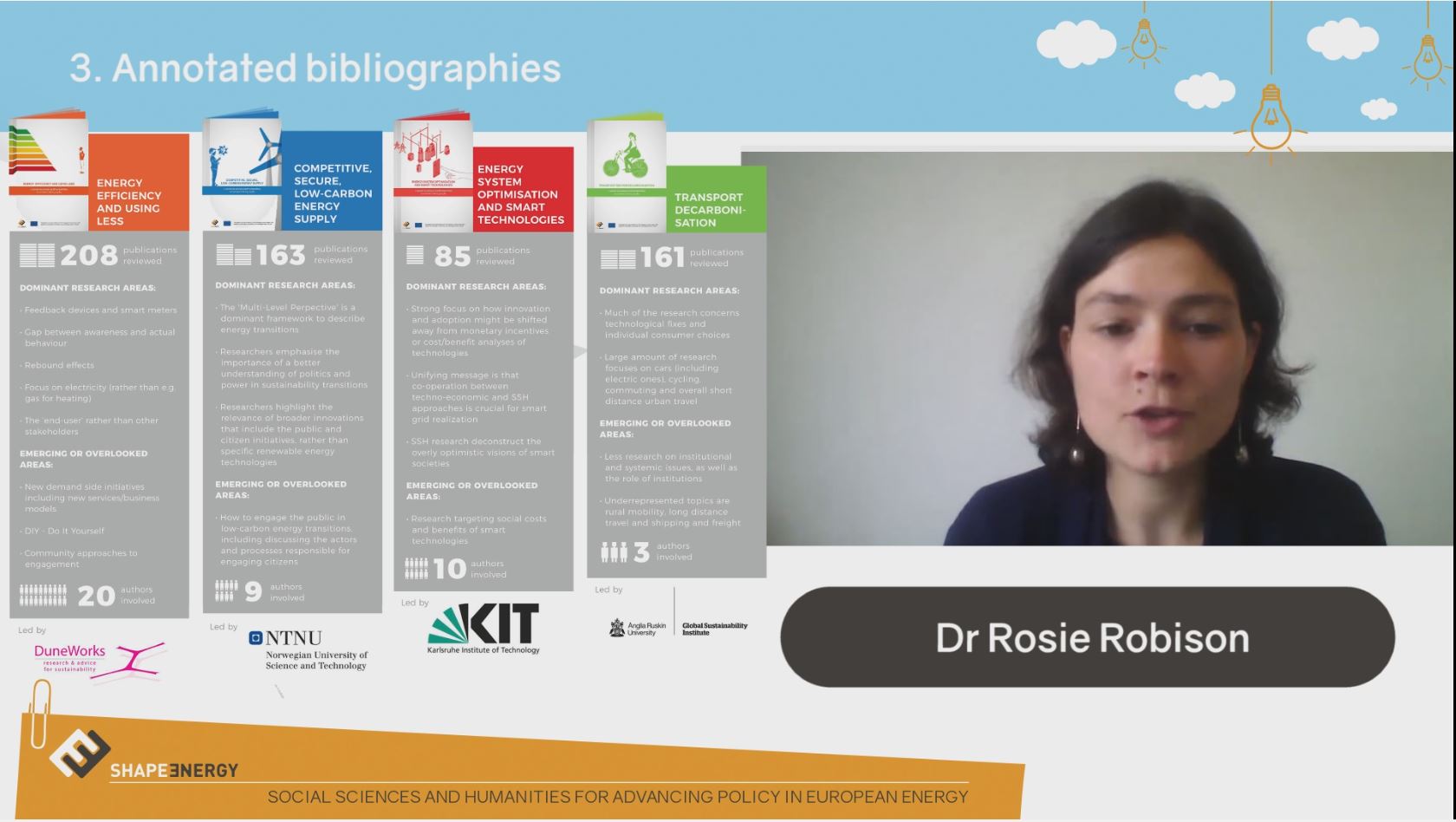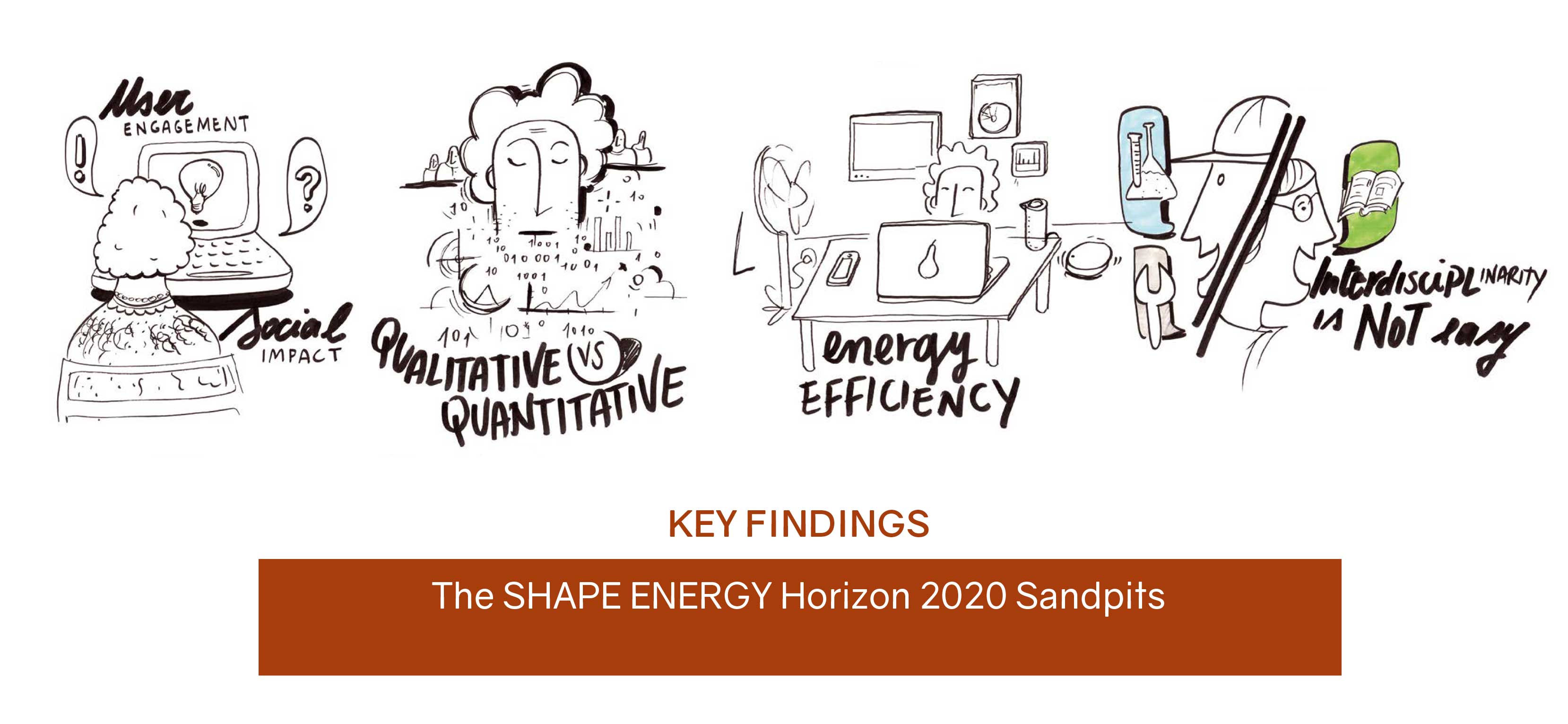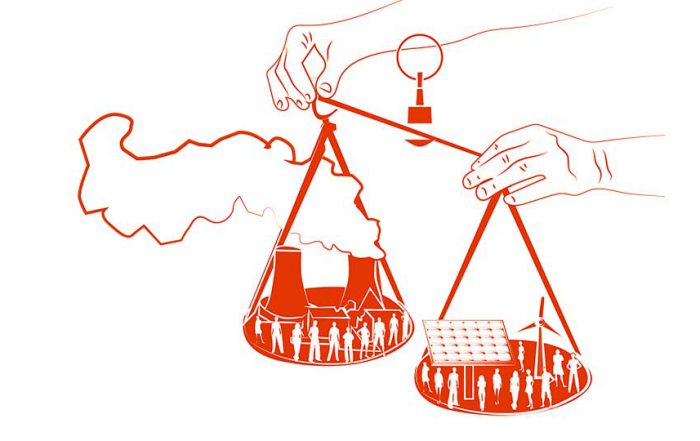
Using the Social Sciences and Humanities in energy technology projects
This page details key Social Sciences and Humanities overview resources for those working in the field of energy technology development. Many technology projects are now looking to understand or incorporate social issues and impacts in their work, in order to achieve better outcomes, anticipate how societies may use technologies in real-world situations, as well as advance our understanding of how society and technology inter-relate. The SHAPE ENERGY Platform (2017-2019) has supported the development and use of the energy-related Social Sciences & Humanities through a wide variety of activities and outputs, just a few of which we showcase here. We have been delighted at the active engagement our work has received – through e.g. our stakeholder needs assessment, H2020 sandpits and social media activity – from energy technology projects and networks, including the European Technology & Innovation Platforms and SET-Plan steering group, large numbers of H2020 energy and transport projects*, the C-ENERGY 2020 group which support H2020 energy proposals through its network of National Contact Points, and numerous business networks via our twitter activity.
*Including: Ambition; BestRES; BioEnergyTrain; Bio-HyPP; BIOROBURplus; BRISK2; CEMCAP; CONSEED; E2District; ECHOES; ECOLED; EMPOWER; EMPOWERING; ENERGISE; ENERWATER; ENLARGE; EnPC-INTRANS; ENTRUST; ESA 2.0; EURECA; FLEXMETER; GEMex; interGRIDy; IRON; ISAAC; ISABEL; LIMPET; MAGIC-NEXUS; MEDEAS; Mobility4EU; MOBISTYLE; NATCONSUMERS; PEMs4Nano; PVSITES; RenGen; ShaleXenvironmenT; SHAR-Q; START2ACT; STOREandGO; SWInG; THOMSON; UPGRADE; ZERO-PLUS
Key SHAPE ENERGY resources for energy technology projects:
This searchable, dynamic tool allows you to find researchers working in energy-related topics across the Social Sciences & Humanities, in Europe and other H2020-eligible countries. Keywords enable you to zoom in on those working on specific topics. Project leads and the European Commission are now using this database to find expert partners and reviewers.

Our annotated bibliographies are an invaluable resource to get an overview of different SSH approaches and findings across SHAPE ENERGY’s four energy topics. Each contains short descriptions of key energy-SSH papers from a diversity of disciplines and countries, and the thematic groupings give an excellent indication of the breadth of work taking place across Europe.
This details our 17 events (Nov 2017 – Jun 2018) which brought together business, policy, and citizen groups to discuss local energy challenges. It showcases the SSH issues of real relevance to local business (see sections 2 and 4), as well as giving a flavour of different ‘hot topics’ in energy across Europe.
Sandpits are “short intensive events aimed at generating new ideas”, and our two-day events in the picturesque Turin brought together 37 European energy and transport projects to discuss interdisciplinary working. Highlights from the report include discussion of SSH-STEM** integration exercises carried out by participants. **Science, Technology, Engineering, Mathematics
5. Early Stage Researcher internships report
For this activity, 17 PhD students undertook internships within H2020 energy and transport projects. A useful output for those in energy technology project is the snapshot of SSH tasks our interns undertook to add value to these projects (see page 15).
6. Cross-cutting theme reports
Each of our cross-cutting theme reports, on highly topical energy-SSH issues, includes a short ‘Recommendations’ section, including tips for interdisciplinary energy projects and platforms.

Why might energy technologists be interested in supporting these 7 Principles to enable a greater role for SSH in the energy agenda? Well, they make a clear case as to how SSH can add value to projects and improve robustness of results. They include practical recommendation for how projects and funders can achieve this, in particular within the major Horizon Europe programme
SELECTED NEWS POSTS & VIDEOS
SHAPE ENERGY, Social Sciences and Humanities for Advancing Policy in European Energy
SHAPE ENERGY is the €2m European platform for energy-related social sciences and humanities (energy-SSH). Social sciences and humanities research has played less
Are energy companies charging too much?
Join the debate! Should bills be capped? Or would that discourage much-needed investment and slow the transition to green energy?
Blog: Multidisciplinary Partnerships for Access to Energy
By Lidia Borrell-Damián, European University Association - 'The transition towards a carbon-neutral society requires the collective effort of all of us.'
H2020 Sandpits: Be amazed at what we can achieve together!
An impressive gathering of current EU energy projects and partners led by our project partner Politecnico di Torino. Listen to key participants now!
Blog: Writing a SHAPE ENERGY bibliography on transport
By Kat Buchmann from Anglia Ruskin University, one of the authors of SHAPE ENERGY annotated bibliography on transport decarbonisation.

